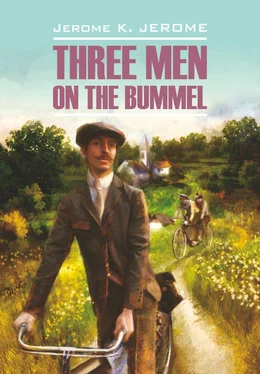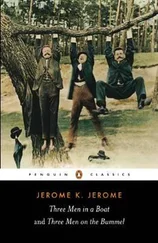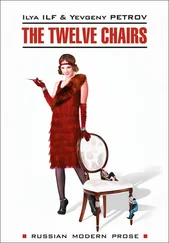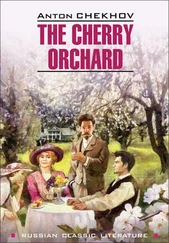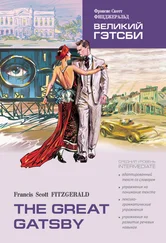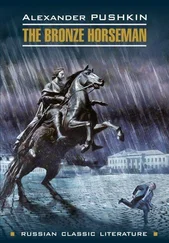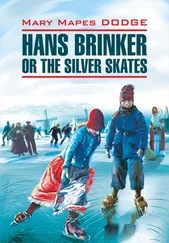“How much do you reckon the stove is going to cost you?” I asked. I felt interested in the subject.
“I don’t know,” answered Harris; “another twenty, I suppose. Then we talked about the piano. Could you ever notice,” said Harris, “any difference between one piano and another?”
“Some of them seem to be a bit louder than others,” I answered; “but one gets used to that.”
“Ours is all wrong about the treble,” said Harris. “By the way, what is the treble?”
“It’s the shrill end of the thing,” I explained; “the part that sounds as if you’d trod on its tail. The brilliant selections always end up with a flourish on it.”
“They want more of it,” said Harris; “our old one hasn’t got enough of it. I’ll have to put it in the nursery, and get a new one for the drawing-room.”
“Anything else?” I asked.
“No,” said Harris; “she didn’t seem able to think of anything else.”
“You’ll find when you get home,” I said, “she has thought of one other thing.”
“What’s that?” said Harris.
“A house at Folkestone for the season.”
“What should she want a house at Folkestone for?” said Harris.
“To live in,” I suggested, “during the summer months.”
“She’s going to her people in Wales,” said Harris, “for the holidays, with the children; we’ve had an invitation.”
“Possibly,” I said, “she’ll go to Wales before she goes to Folkestone, or maybe she’ll take Wales on her way home; but she’ll want a house at Folkestone for the season, notwithstanding. I may be mistaken – I hope for your sake that I am – but I feel a presentiment that I’m not.”
“This trip,” said Harris, “is going to be expensive.”
“It was an idiotic suggestion,” I said, “from the beginning.”
“It was foolish of us to listen to him,” said Harris; “he’ll get us into real trouble one of these days.”
“He always was a muddler,” I agreed.
“So headstrong,” added Harris.
We heard his voice at that moment in the hall, asking for letters.
“Better not say anything to him,” I suggested; “it’s too late to go back now.”
“There would be no advantage in doing so,” replied Harris. “I should have to get that bathroom and piano in any case now.”
He came in looking very cheerful.
“Well,” he said, “is it all right? Have you managed it?”
There was that about his tone I did not altogether like; I noticed Harris resented it also.
“Managed what?” I said.
“Why, to get off,” said George.
I felt the time was come to explain things to George.
“In married life,” I said, “the man proposes, the woman submits. It is her duty; all religion teaches it.” George folded his hands and fixed his eyes on the ceiling.
“We may chaff and joke a little about these things,” I continued; “but when it comes to practice, that is what always happens. We have mentioned to our wives that we are going. Naturally, they are grieved; they would prefer to come with us; failing that, they would have us remain with them. But we have explained to them our wishes on the subject, and – there’s an end of the matter.”
George said, “Forgive me; I did not understand. I am only a bachelor. People tell me this, that, and the other, and I listen.”
I said, “That is where you do wrong. When you want information come to Harris or myself; we will tell you the truth about these questions.”
George thanked us, and we proceeded with the business in hand.
“When shall we start?” said George.
“So far as I am concerned,” replied Harris, “the sooner the better.”
His idea, I fancy, was to get away before Mrs. H. thought of other things. We fixed the following Wednesday.
“What about route?” said Harris.
“I have an idea,” said George. “I take it you fellows are naturally anxious to improve your minds?”
I said, “We don’t want to become monstrosities. To a reasonable degree, yes, if it can be done without much expense and with little personal trouble.”
“It can,” said George. “We know Holland and the Rhine. Very well, my suggestion is that we take the boat to Hamburg, see Berlin and Dresden, and work our way to the Schwarzwald, through Nuremberg and Stuttgart.”
“There are some pretty bits in Mesopotamia, so I’ve been told,” murmured Harris.
George said Mesopotamia was too much out of our way, but that the Berlin – Dresden route was quite practicable. For good or evil, he persuaded us into it.
“The machines, I suppose,” said George, “as before. Harris and I on the tandem, J. – ”
“I think not,” interrupted Harris, firmly. “You and J. on the tandem, I on the single.”
“All the same to me,” agreed George. “J. and I on the tandem, Harris – ”
“I do not mind taking my turn,” I interrupted, “but I am not going to carry George all the way; the burden should be divided.”
“Very well,” agreed Harris, “we’ll divide it. But it must be on the distinct understanding that he works.”
“That he what?” said George.
“That he works,” repeated Harris, firmly; “at all events, uphill.”
“Great Scott!” said George; “don’t you want any exercise?”
There is always unpleasantness about this tandem. It is the theory of the man in front that the man behind does nothing; it is equally the theory of the man behind that he alone is the motive power [30] the motive power – движущая сила
, the man in front merely doing the puffing. The mystery will never be solved. It is annoying when Prudence is whispering to you on the one side not to overdo your strength and bring on heart disease; while Justice into the other ear is remarking, “Why should you do it all? This isn’t a cab. He’s not your passenger:” to hear him grunt out:
“What’s the matter – lost your pedals?”
Harris, in his early married days, made much trouble for himself on one occasion, owing to this impossibility of knowing what the person behind is doing. He was riding with his wife through Holland. The roads were stony, and the machine jumped a good deal.
“Sit tight,” said Harris, without turning his head.
What Mrs. Harris thought he said was, “Jump off.” Why she should have thought he said “Jump off,” when he said “Sit tight,” neither of them can explain.
Mrs. Harris puts it in this way, “If you had said, ‘Sit tight,’ why should I have jumped off?”
Harris puts it, “If I had wanted you to jump off, why should I have said ‘Sit tight!’?”
The bitterness is past, but they argue about the matter to this day.
Be the explanation what it may [31] be the explanation what it may – ( устар .) как бы то ни было; какими бы ни были объяснения
, however, nothing alters the fact that Mrs. Harris did jump off, while Harris pedalled away hard, under the impression she was still behind him. It appears that at first she thought he was riding up the hill merely to show off. They were both young in those days, and he used to do that sort of thing. She expected him to spring to earth on reaching the summit, and lean in a careless and graceful attitude against the machine, waiting for her. When, on the contrary, she saw him pass the summit and proceed rapidly down a long and steep incline, she was seized, first with surprise, secondly with indignation, and lastly with alarm. She ran to the top of the hill and shouted, but he never turned his head. She watched him disappear into a wood a mile and a half distant, and then sat down and cried. They had had a slight difference that morning, and she wondered if he had taken it seriously and intended desertion. She had no money; she knew no Dutch. People passed, and seemed sorry for her; she tried to make them understand what had happened. They gathered that she had lost something, but could not grasp what. They took her to the nearest village, and found a policeman for her. He concluded from her pantomime that some man had stolen her bicycle. They put the telegraph into operation, and discovered in a village four miles off an unfortunate boy riding a lady’s machine of an obsolete pattern. They brought him to her in a cart, but as she did not appear to want either him or his bicycle they let him go again, and resigned themselves to bewilderment.
Читать дальше
